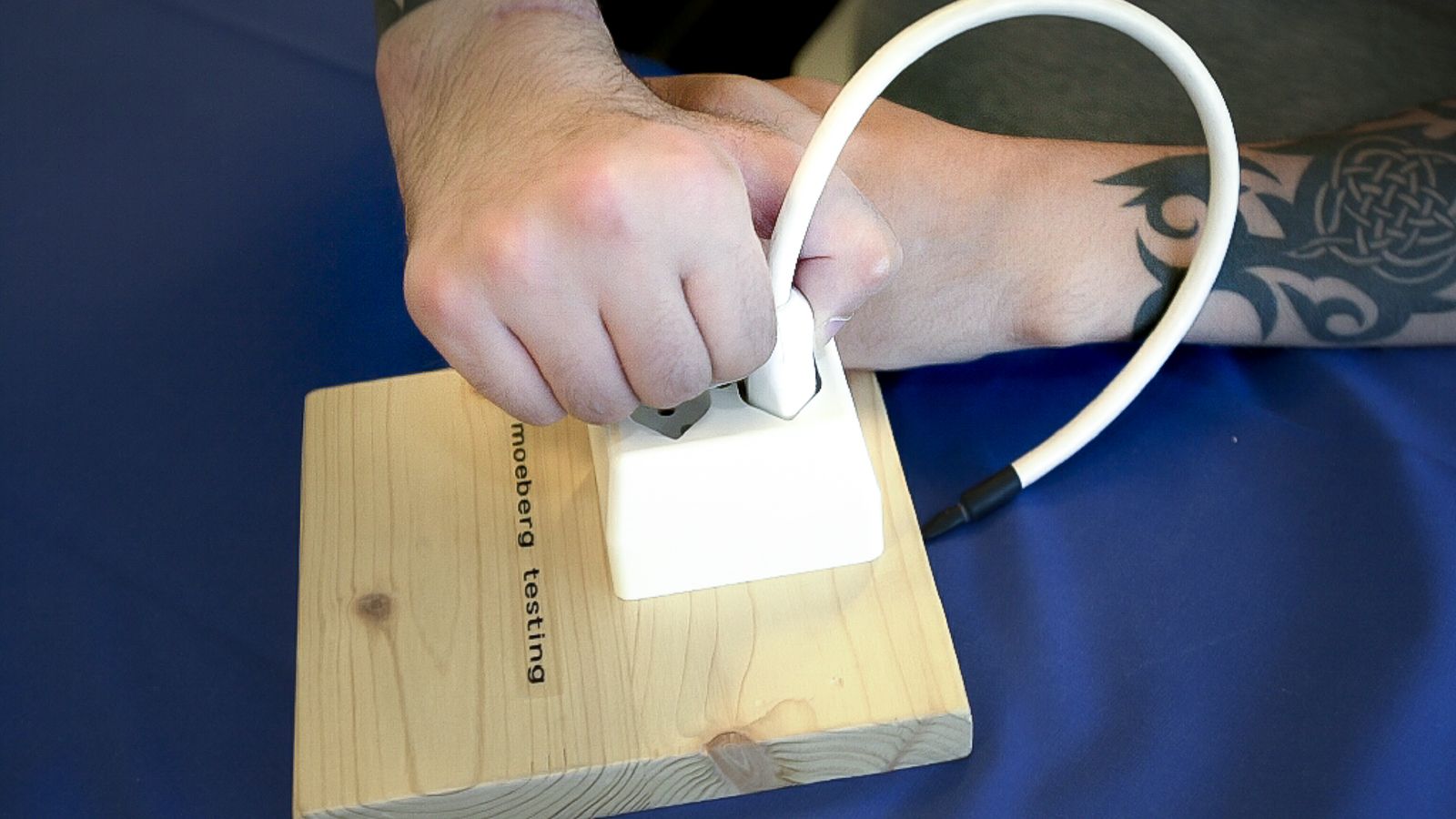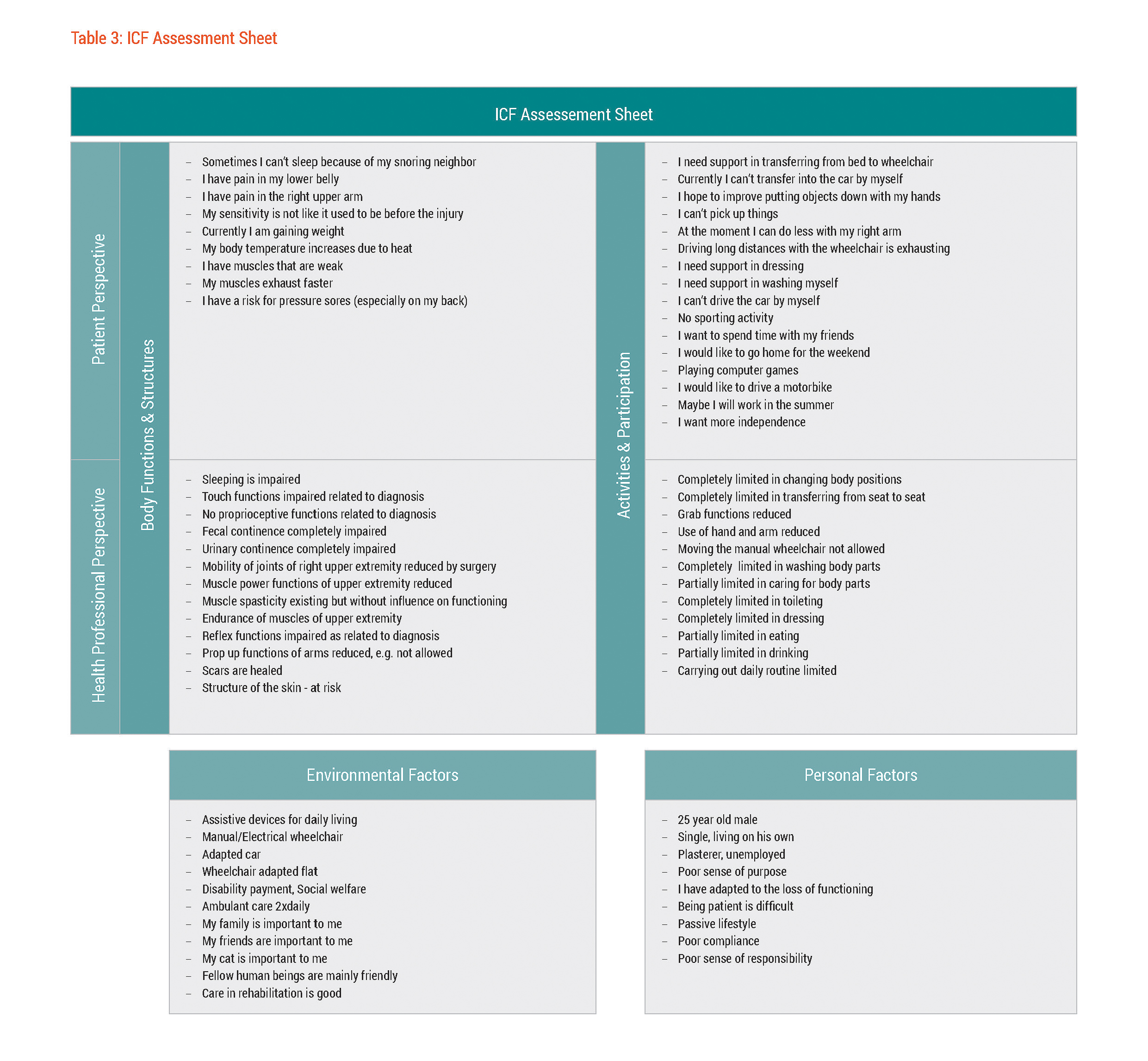Assessment

The Team’s Assessment
Peter’s rehabilitation team worked closely with a psychologist to carry out an assessment of Peter's current functioning status. The inclusion of a psychologist in the team helped ensure that Peter’s behaviour was taken into account in the assessment. Table 3 – the ICF Assessment Sheet – provides an overview of the assessment results from the perspective of the health professional i.e. Peter's rehabilitation team, as well as from Peter's own perspective. Peter's perspective, as shown on the table as "Patient Perspective", is reflected in statements he made in discussions with him during the assessment.
""I had to use this electric wheelchair, which I couldn't really get the hang of.""
Considering Peter's perspective was important, since it illuminated aspects of his experience living with spinal cord injury (SCI) that could faciliate his rehabilitation. For example, Peter's specific needs and complaints about body functions i.e. pain, muscle weakness, lack of sleep, etc. reflected those of many persons with tetraplegia. These body function issues were not exceptionally difficult to address, and many were well-met. This was illustrated by the fact that Peter easily performed his physical therapy activities. The procedure performed on his arm and hand posed no complications for him. Peter's perspective on activities and participation, however, were not as simple.
You know, after this surgery, everything just seemed more difficult. I had to use this electric wheelchair, which I couldn’t really get the hang of. And I even needed more help because I couldn’t use my hand. It was all really frustrating...And I felt like I was in prison. I just wanted to go home on the weekends to get away – play around a little, meet my friends, feed my cat. I really wanted more freedom. In the hospital, I found it hanging out with my new friends in the ward, but that wasn’t exactly the same as at home.
Peter
In short, Peter found it difficult being in the rehabilitation centre. His interest in the rehabilitation programme was continually decreasing, and he was often frustrated, bored and less than challenged. He found himself becoming idle.
""I felt a bit resentful and I think I kind of took it out on the nurses and doctors...And I felt like I was in prison. I just wanted to go home on the weekends to get away...""

Table 3: ICF Assessment Sheet
From the health professional’s perspective, Peter had the typical impairments and limitations of a person with tetraplegia C6, ASIA B. However, the psychologist made note of a number of personal factors that had a significant impact on his functioning. These included a passive lifestyle, poor compliance, and the absence of a sense of responsibility and purpose. To address these factors, specific intervention targets were identified.